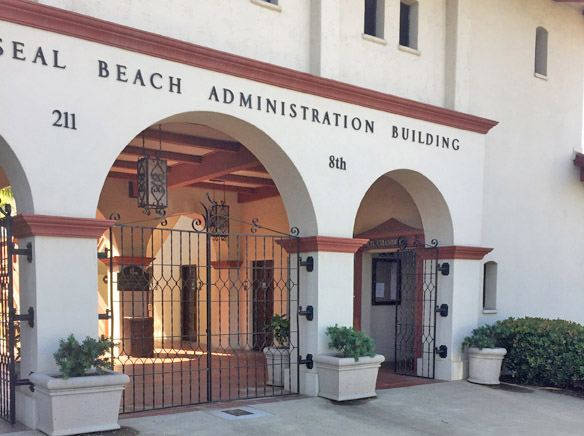Following a public hearing, the Seal Beach City Council unanimously and reluctantly approved new rules for so-called “accessory dwelling units” and “junior accessory dwelling units” so the city code would conform to state law.
The units, also known as “granny flats,” have been the subject of frequent Municipal Code updates in recent years, all required by changes to state law. The state is limiting the authority of cities (and homeowners associations) to regulate the small living quarters.
The small living quarters will now be allowed in Old Town and Surfside. The city will be required to approve the ADUs with few exceptions.
No members of the public spoke during the public hearing, which followed a lengthy presentation.
One by one, each council member voted “yes,” concluding with District Five Councilwoman Sandra Massa-Lavitt, who said, “Reluctantly, yes, only because I have to.”
Before he gave his presentation on the issue, Interim Community Development Director Barry Curtis apologized to the council for its length. (Space does not permit going into all the changes and regulations mandated by the state.)
Curtis said adopting the ordinance would put Seal Beach in a stronger position for what he described as a difficult Housing Element approval process. (The Housing Element is a section of the city’s General Plan. Seal Beach’s Housing Element is up for renewal by the state government.)
“I am so dismayed about this,” Massa-Lavitt said during the meeting.
She predicted there would be issues with parking in neighborhoods impacted by the new rules.
Massa-Lavitt said she had a problem with allowing garage conversions without requiring replacement parking.
Massa-Lavitt said there was nothing in the legislation about the units being affordable. Yet according to Massa-Lavitt the intent of the legislature in what she called the “horrible” requirements they were imposing on cities was to create affordable housing.
Background
“In October 2019, the Governor signed multiple housing laws to further promote the development of ADUs and junior accessory dwelling units (JADUs) in singlefamily, multi-family, and mixed-use zones,” according to the staff report by Interim Community Development Director Barry Curtis.
“The intent was to promote additional housing stock to help address California’s housing needs. Effective January 1, 2020, State law requires cities to relax or eliminate many development standards relating to ADUs,” Curtis wrote.
“For example, cities can no longer establish a minimum lot size where an ADU can be constructed or prohibit ADUs of less than 800 square feet in area. In addition, cities cannot require replacement of parking spaces lost when a garage is converted into an ADU,” Curtis wrote.
According to Curtis, other legislation, effective Jan. 1, 2021, would prohibit cities from requiring owner occupancy of ADUs from Jan. 1, 2020 to Jan. 1, 2025, but would allow owner-occupancy requirements after that period.
“Under State law, applications for accessory dwelling units must now be approved or disapproved ministerially (no discretionary review) within 60 days of receipt,” Curtis wrote.
“The City can continue to designate areas where ADUs are permitted, but a prohibition on ADUs must be justified by express findings,” Curtis wrote.
“Importantly, ADUs will now be permitted in Old Town and Surfside,” Curtis wrote.
In May, the Planning Commission formally recommended that the city adopt a Zoning Text amendment that would make city rules for accessory dwelling units.
The vote was 4 to 1. District Four Commissioner Patty Campbell cast her vote as a protest.





